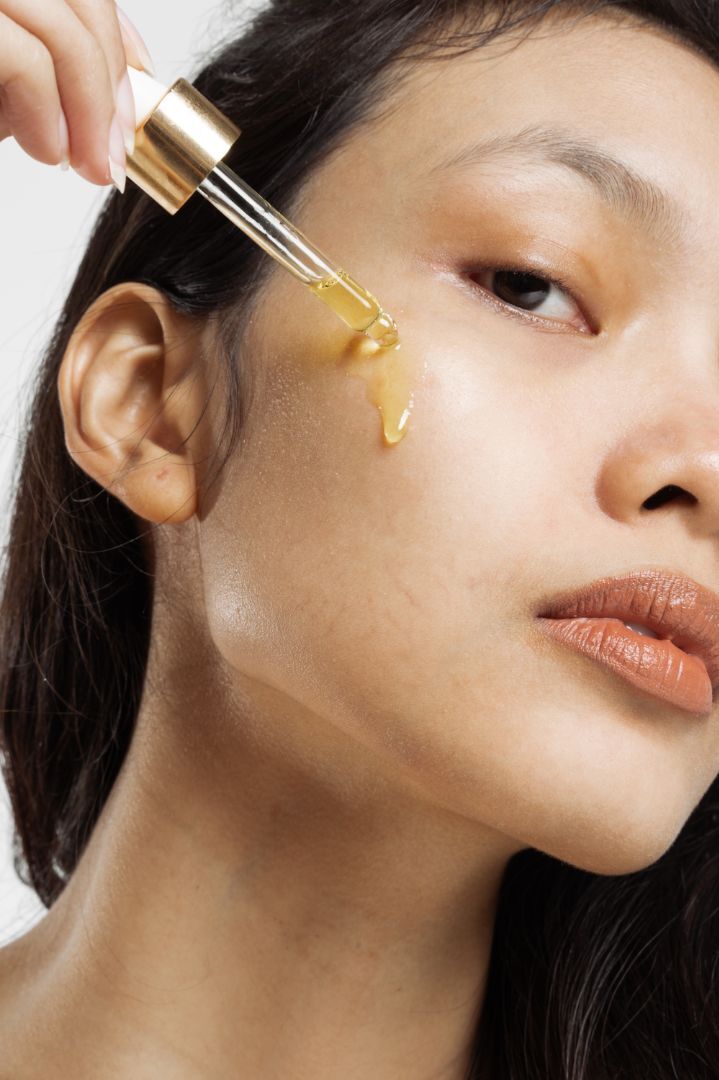

Having oily skin can be a complexion conundrum. When your t-zone looks like an oil spill before lunchtime or your makeup has melted off by mid-day, having this skin type can feel like a serious struggle. What’s worse, it might seem as though there’s nothing you can do about it.
You’ve probably wondered what causes oily skin plenty of times—and the answer is a lot.
But the good news is there are ways to cut the shine. We all have sebaceous (oil) glands on our skin that vary in the amount of oil (sebum) production they produce. Oily skin is typically characterized by oily/shiny skin that typically presents all over the face. There is a subtype of oily skin, combination skin, which presents as oily skin on the t-zone (forehead, nose, eyebrows) but dry to balanced elsewhere.
Sound familiar? Then you might have oily skin. Though you might wish you could change your skin type, unfortunately, it isn’t that simple. You can’t change your skin type but your skin type can change, so to speak. Your skin can change over time, certain climates may change your skin, and medications can change your skin. For example, after treatment with isotretinoin (formerly Accutane), someone with oily skin may move toward the drier end of the skin type spectrum. And with age, it is common for skin to become drier.
It’s also important to note common myths and what doesn’t cause oily skin. That includes having large pores, which is often seen in people with oily skin but doesn’t affect oil production. Another myth is that exercise causes oily skin: The benefits of a good workout far outweigh any of the negatives on the skin. During your workout, you have increased blood flow to the skin and sweat production, but it does not cause your skin to be more oily. Exercise will likely lower stress which is a common cause of increased oil production.
To help temper that shine, learn what does cause oily skin—and what you can do about it.
Genetics
Your gene pool is a major factor in your skin type. There are studies that actually show identical twins had the same or very similar amounts of oil production while non-identical twins did not.
Skipping Moisturizer
It might seem counterintuitive, but forgoing moisturizer can actually put oil production into overdrive. The oil glands have the ability to sense that skin is drier and begin to overcompensate and produce more oils. Make sure to use a well-balanced light moisturizer and avoid products that break down the skin barrier, causing dryness and irritation. Moisturizing is key for all skin types because it helps maintain hydration within the skin.
Age
It’s not your imagination—there actually is a correlation between your age and how oily your complexion is. During puberty, you have a large increase in oil production due to the increase in androgen hormones (DHT). You can also see an increase in oil production during ovulation of the menstrual cycle due to an influx of hormones as well. However, as you get older you become less oily. As you age in general you also have less sebum production, which is why many people complain of dry skin. Oily complexions really start to calm down after menopause, thanks to a decrease in hormones.
Using the Wrong Skincare Ingredients
This common culprit can cause oily skin. Avoid harsh astringents or alcohol-based solutions that can actually cause your sebaceous glands to over-compensate and produce even more sebum. Anything that dries the skin can cause this effect. Oily skin types are better off avoiding oil-based products, so look for “oil-free” on the label. Try using products with ingredients like retinol and niacinamide, as well as oil-free moisturizers and mattifying sunscreens.
Your Environment and Climate
In higher temperatures and with increased humidity levels, the sebaceous glands tend to increase oil production. The time of year can also effect oil production, which is why skin feels oilier in the spring and summer.
Diet
Sometimes a particular food can take a toll on your complexion. A high intake of alcohol, meats, as well as dairy has been shown to be associated with higher oil production.
Stress
It’s no secret that stress can take a major toll on your complexion, and that includes causing oily skin. High stress levels increase cortisol levels, which can then trigger increased oil production from sebaceous glands.
Hormones
Unsurprisingly, hormones play a major role in oily skin. The oil glands are partially controlled by hormones, particularly androgen hormones. Hormonal fluctuations from day to day and week to week can cause increased oil production over time.
What to Use for Oily Skin
Apart from what is listed above, your skin care is the main focal point that you need to change to help manage your oil production. Having ingredients that can fight oily skin, which can lead to acne and clogged pores, is extremely important. Check out Wild Naturals and our line featuring manuka honey skin care, hair care, and more!


